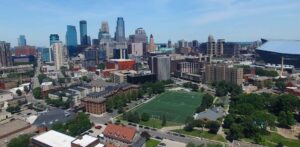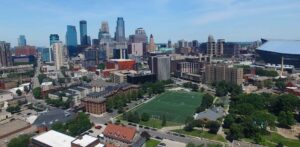The History and Culture of Northwest Nigeria

Introduction
Northwest Nigeria is a region of immense historical significance, cultural diversity, and political influence. Comprising seven states—Jigawa, Kaduna, Kano, Katsina, Kebbi, Sokoto, and Zamfara—the region was the heartland of powerful pre-colonial empires, Islamic scholarship, and trans-Saharan trade. It is predominantly inhabited by the Hausa and Fulani ethnic groups, with significant minority populations such as the Gwari, Kamuku, and Zabarmawa.
This comprehensive exploration delves into the history, ethnic composition, cultural heritage, traditional governance, economic activities, and contemporary challenges of Northwest Nigeria.
Historical Background of Northwest Nigeria
Pre-Colonial Era
The Northwest was home to some of Africa’s most advanced civilizations, characterized by centralized states, flourishing trade, and Islamic learning.
-
Hausa Kingdoms (7th–19th Century)
-
The Hausa Bakwai (seven legitimate states) included Daura, Kano, Katsina, Zaria, Gobir, Rano, and Biram.
-
Kano and Katsina emerged as major commercial and Islamic centers, linking West Africa to the trans-Saharan trade routes.
-
Queen Amina of Zazzau (Zaria) was a legendary 16th-century warrior-queen who expanded her kingdom through military conquests.
-
-
Gobir and the Fulani Jihad (1804–1808)
-
Usman dan Fodio, a Fulani Islamic scholar, launched a jihad against the Hausa rulers, accusing them of corruption and un-Islamic practices.
-
The jihad led to the establishment of the Sokoto Caliphate, one of Africa’s largest pre-colonial states.
-
-
Kebbi Kingdom
-
A resistance stronghold against the Sokoto Caliphate, known for its warrior culture.
-
Colonial Era (1903–1960)
-
The British conquered the region in 1903 and integrated it into the Northern Protectorate.
-
Indirect Rule was implemented through the existing emirate system, reinforcing the power of traditional rulers.
-
Railways and roads were constructed to facilitate the export of groundnuts and cotton.
Post-Independence (1960–Present)
-
The region remained a political powerhouse, producing Nigeria’s first Prime Minister, Sir Abubakar Tafawa Balewa.
-
Sharia law was reintroduced in several states in the early 2000s, sparking national debate.
-
Banditry and insurgency have recently plagued states like Zamfara and Kaduna.
Ethnic Groups and Languages
Major Ethnic Groups
-
Hausa – The dominant group, known for trade, Islamic scholarship, and the Hausa language, which serves as a lingua franca.
-
Fulani (Fulbe) – Primarily pastoralists; played a key role in the Sokoto Caliphate.
-
Gwari (Gbagyi) – Indigenous people of Kaduna and Niger States.
-
Kamuku – Found in Kebbi and Niger, known for farming.
-
Zabarmawa – A subgroup of the Hausa in Jigawa and Kano.
Languages
-
Hausa is the most widely spoken language.
-
Fulfulde is used among the Fulani.
-
Minority languages include Gwari, Kamuku, and Zabarmawa.
-
Arabic is studied for Islamic education.
Cultural Practices and Traditions
Religion
-
Islam is the dominant religion, deeply influencing culture, law, and daily life.
-
Traditional Hausa animism (Bori cult) still exists in some rural areas.
Festivals and Ceremonies
-
Durbar Festival – Celebrated during Muslim festivals (Eid al-Fitr and Eid al-Adha), featuring horse-riding displays by emirs and their guards.
-
Argungu Fishing Festival (Kebbi) – A UNESCO-recognized cultural event where fishermen compete in a grand fishing contest.
-
Kano Carnival – A modern festival showcasing Hausa music, dance, and fashion.
-
Hawan Daushe (Katsina) – A traditional horse-riding ceremony marking the end of Ramadan.
Traditional Attire
-
Men: Babban riga (flowing gown), Jalabiya, and Fula hat.
-
Women: Hijab, abaya, and zane (colorful wrapper).
-
Royalty: Emirs wear elaborate turbans, swords, and embroidered robes.
Traditional Rulership
-
Sultan of Sokoto – The spiritual leader of Nigerian Muslims and heir to the Sokoto Caliphate.
-
Emir of Kano – One of Nigeria’s most influential traditional rulers.
-
Emir of Katsina – A key figure in Hausa-Fulani history.
Marriage and Family Life
-
Arranged marriages are common, with parental approval highly valued.
-
Bride price (sadaki) is paid in cash or goods.
-
Polygamy is practiced, especially among the wealthy and ruling class.
Economic Activities
-
Agriculture
-
Kano, Katsina, and Jigawa are major producers of groundnuts, cotton, and millet.
-
Kebbi is known as the “breadbasket of Nigeria” due to its rice production.
-
-
Trade and Commerce
-
Kano has one of West Africa’s largest markets (Kurmi Market).
-
Sokoto was historically a hub for the trans-Saharan trade in salt, gold, and slaves.
-
-
Livestock Rearing
-
The Fulani are renowned for cattle herding, supplying milk and meat nationwide.
-
-
Mining
-
Zamfara has significant gold deposits, though illegal mining has fueled banditry.
-
Challenges Facing Northwest Nigeria
-
Banditry and Kidnappings
-
States like Zamfara, Katsina, and Kaduna face severe security challenges.
-
-
Poverty and Unemployment
-
High youth unemployment has contributed to crime and radicalization.
-
-
Ethnic and Religious Tensions
-
Clashes between farmers and herders have escalated into violence.
-
-
Environmental Degradation
-
Deforestation and desertification threaten agricultural productivity.
-
Conclusion
Northwest Nigeria remains a region of historical grandeur, cultural richness, and economic potential. While it faces significant challenges, its people continue to uphold their traditions and contribute to Nigeria’s national identity. Restoring security and fostering development are essential for the region’s future prosperity.
Thank you for following us incase you find any error in our contents please kindly send us mail or you need additional information you want us to add to any history kindly send us because all what we are posted was generated according to what we see online or we have acknowledged about in this case we can’t perfect in 100% kindly correct us in any aspect you find that’s need.
Noted:- We are not copy from any blog if you fund one your line or content is attach to our post kinky report to our [email protected] and we promise you we are going to rephrase it immediately thanks so much we love you all.


